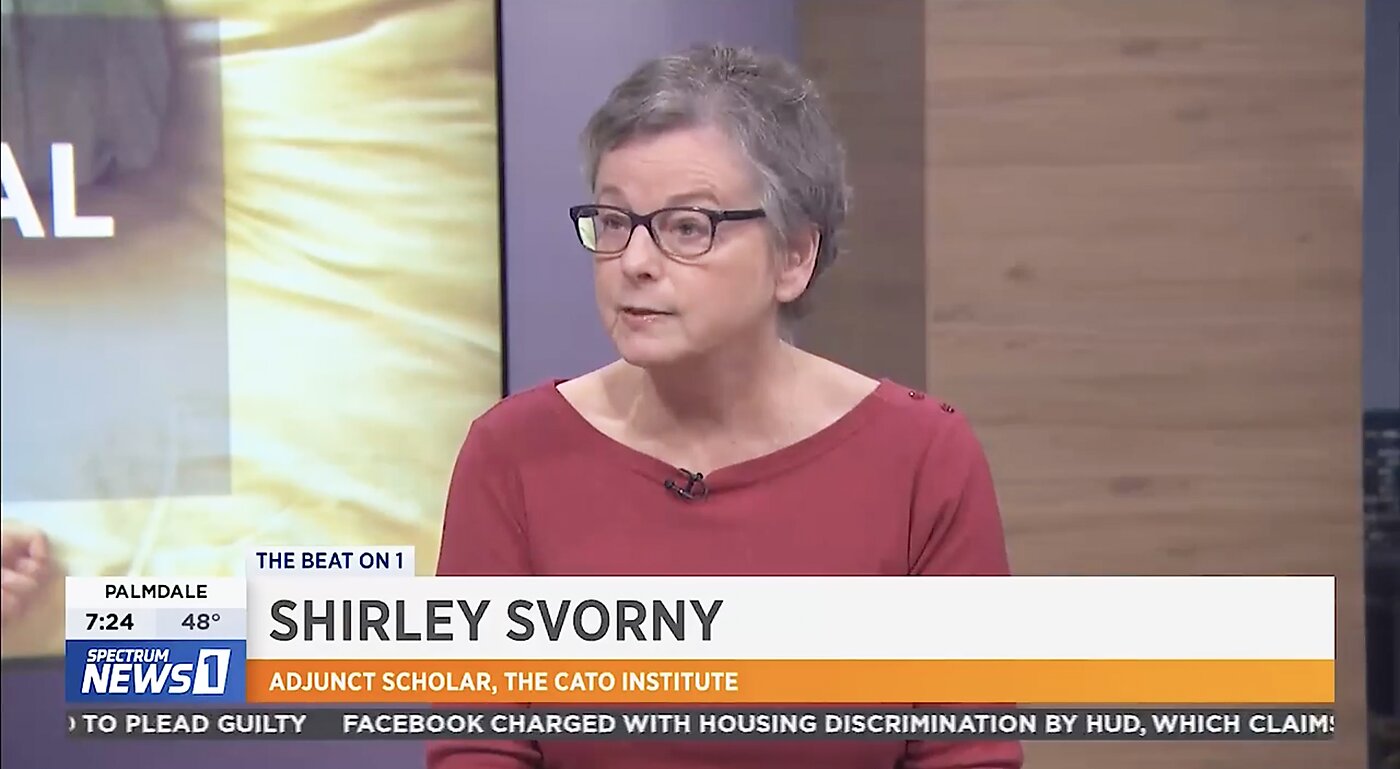
I learned on Wednesday that my fellow UCLA Ph.D. grad Shirley Svorny died on October 20. Health economist Michael F. Cannon wrote a very thoughtful obituary and summary of some of the highlights of Shirley’s excellent work.
I’ll mention a few, focusing on things I didn’t know or knew only vaguely.
Her Dissertation
Her dissertation sought to “explain why U.S. policy makers diverged from their usual policy to allow unrestricted migration [of foreign‐trained physicians] from 1965 to 1980.” Without liberalization, “the unprecedented expansion in health care expenditures” that followed the creation of Medicare and Medicaid “may have led to severe queues or price hikes” that would have angered consumers. Shirley found evidence that liberalizing migration increased the supply of physicians and reduced prices for physician services. She argued that domestic physicians temporarily yielded to liberalization because “in order for physicians to maximize their long‐run earnings, they must avoid actions that would cause consumers to put pressure on the government to repeal some of the legislation that currently protects physicians from competition.”
Regulatory Barriers to Telehealth
Two years before anyone had heard of Covid‐19, Shirley authored a studyarguing for removing regulatory barriers to telehealth and made the case for liberalizing telehealth alongside U.S. Sen. Brian Schatz (D‑HI) at a briefing on Capitol Hill. After Covid hit, she and I [Michael Cannon] coauthored a study arguing that Covid‐19 demonstrates that clinician licensing reduces access to medical care; we presented alternatives to monopolistic certification of clinician categories and quality.
Shirley’s Disease and Kaiser Permanente Care
Shirley fought multiple myeloma for more than seven years, even participating in a clinical trial. I was glad to hear she was happy with the care she received; she loved to surprise managed‐care skeptics by sharing her positive experiences with Kaiser Permanente.
My Own Recollection
In late December 1977 a number of us UCLAers got together at the American Economics Association meetings in New York and went to an Italian restaurant afterwards. There was a guy singing songs and playing his guitar during our meal and I got up the nerve to ask if I could sing a song. He said yes. So I started with an easy one, “King of the Road.” That went well and so I sang Frank Sinatra’s “My Way.” A friend at our table told me that a mutual friend had expressed his embarrassment but that Shirley had said words to the effect, “That was wonderful.” I know that I made this about me, but it’s one of my fondest memories of the person Shirley was.
By the way, I have a picture of a few of us with our professor Jack Hirshleifer before we went to dinner. Unfortunately, Shirley isn’t in it.

READER COMMENTS
Daniel Klein
Oct 30 2022 at 2:30pm
Saddened to learn of Shirley’s passing. Thanks David, and Michael Cannon for his at Cato.
I got to interact with Shirley a couple of times and she was very kind. She contributed to a book that Fred Foldvary and I edited, and to Econ Journal Watch:
https://econjwatch.org/articles/licensing-doctors-do-economists-agree
Larry White interviewed Shirley for the podcast:
https://econjwatch.org/podcast/shirley-svorny-on-medical-licensing
Mike Sproul
Oct 31 2022 at 12:33am
I once ran into Shirley at Cal State Northridge. I mentioned that I had just gotten a paper accepted at the JPE. Shirley jumped up and down like a little kid–looking just as excited as if one of her own papers had been accepted.
Comments are closed.